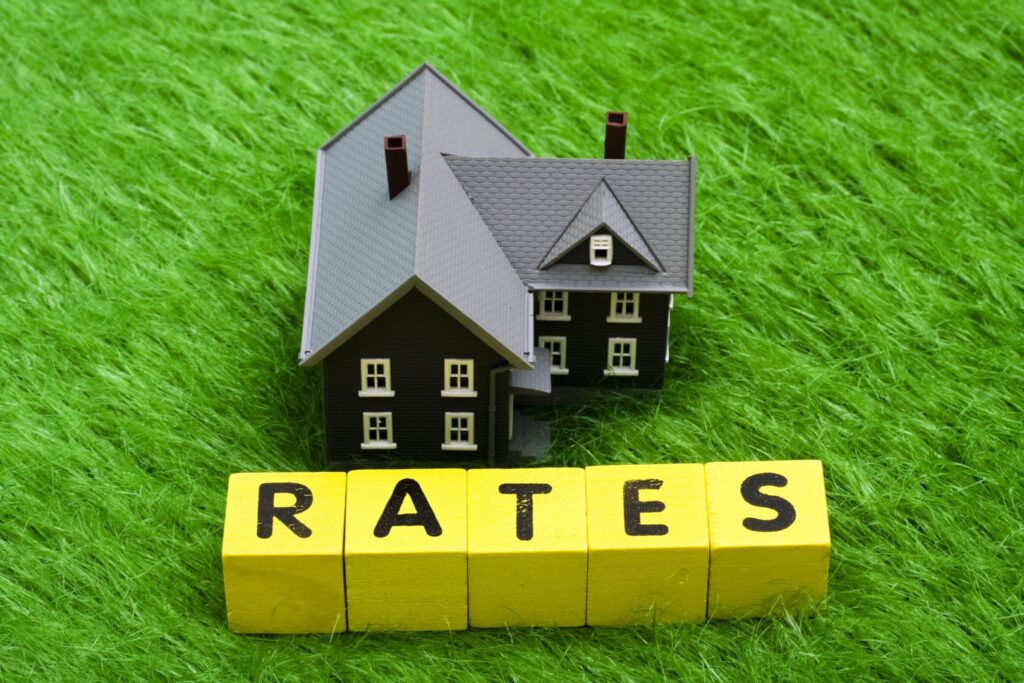Rising interest rates can have a significant impact on mortgages. When interest rates increase, the cost of borrowing money also increases. This means that homeowners with adjustable-rate mortgages (ARMs) could see their monthly payments rise, making it more difficult to keep up with their mortgage payments.
For those with fixed-rate mortgages, rising interest rates may not have an immediate impact on their monthly payments. However, when it comes time to refinance or sell their home, the higher interest rates could make it more difficult to find a buyer or qualify for a new loan. This could potentially lead to a decrease in home values and a slowdown in the housing market.
It’s important for homeowners to stay informed about changes in interest rates and how they can impact their mortgage. By understanding the potential effects of rising interest rates, homeowners can make informed decisions about their finances and take steps to protect their investments.
- The Direct Impact of Rising Interest Rates on Mortgage
- How Adjustable-Rate Mortgages Are Affected
- Fixed-Rate Mortgages and Rising Interest Rates
- The Effect on Refinancing Your Mortgage
- Conclusion
The Direct Impact of Rising Interest Rates on Mortgage
When interest rates rise, it can have a direct impact on mortgage rates. This is because mortgage rates are closely tied to the interest rates set by the Federal Reserve. When the Federal Reserve raises interest rates, mortgage rates tend to follow suit.
As mortgage rates rise, the cost of borrowing money to purchase a home also increases. This means that homebuyers may have to pay more each month for their mortgage payments, which can make it more difficult to afford a home.
For example, if a homebuyer is looking to purchase a $300,000 home with a 30-year fixed-rate mortgage and a 4% interest rate, their monthly mortgage payment would be approximately $1,432. However, if interest rates were to rise to 5%, their monthly mortgage payment would increase to approximately $1,610.
In addition to higher monthly mortgage payments, rising interest rates can also impact a homeowner’s ability to refinance their mortgage. When interest rates rise, the cost of refinancing a mortgage also increases, which can make it more difficult for homeowners to take advantage of lower interest rates in the future.
Overall, rising interest rates can have a significant impact on mortgage rates and the cost of borrowing money to purchase a home. Homebuyers and homeowners should be aware of these potential changes and plan accordingly to ensure they can afford their mortgage payments.
How Adjustable-Rate Mortgages Are Affected
Adjustable-rate mortgages (ARMs) are a type of mortgage where the interest rate can change over time. ARMs typically have lower initial interest rates than fixed-rate mortgages, but the interest rate can adjust up or down based on market conditions. As interest rates rise, so do the monthly payments for ARMs.
When interest rates rise, the interest rate on an ARM will adjust upward, which means that the monthly payment will increase. The amount of the increase will depend on the terms of the loan and the amount of the rate increase. For example, if interest rates rise by 1%, a borrower with a $200,000 ARM loan at a 4% interest rate would see their monthly payment increase by approximately $120.
Borrowers with ARMs should be aware of the potential for rising interest rates and should plan accordingly. If interest rates are expected to rise in the near future, borrowers may want to consider refinancing to a fixed-rate mortgage to lock in a lower interest rate. Alternatively, borrowers may want to make extra payments on their ARM to pay down the principal and reduce the impact of rising interest rates on their monthly payment.
In summary, rising interest rates can have a significant impact on adjustable-rate mortgages. Borrowers with ARMs should be aware of the potential for rising interest rates and should consider their options for managing the impact on their monthly payment.
Fixed-Rate Mortgages and Rising Interest Rates
Fixed-rate mortgages are a popular choice for homeowners because they offer predictable monthly payments and protection against rising interest rates. However, when interest rates rise, fixed-rate mortgages can also become more expensive.
When a borrower takes out a fixed-rate mortgage, the interest rate is locked in for the life of the loan. This means that even if interest rates rise, the borrower’s monthly mortgage payment will remain the same. However, if interest rates rise significantly, the borrower may end up paying more in interest over the life of the loan.
For example, if a borrower takes out a 30-year fixed-rate mortgage with an interest rate of 4%, their monthly payment will be $477.42. If interest rates rise to 5%, their monthly payment will remain the same, but they will end up paying an additional $34,080 in interest over the life of the loan.
To avoid this scenario, some borrowers choose to refinance their mortgages when interest rates are low. Refinancing allows borrowers to take out a new mortgage with a lower interest rate, which can lower their monthly payments and reduce the amount of interest they pay over the life of the loan.
Overall, rising interest rates can make fixed-rate mortgages more expensive, but borrowers can protect themselves by refinancing when interest rates are low.
The Effect on Refinancing Your Mortgage
Rising interest rates can have a significant impact on homeowners looking to refinance their mortgage. As interest rates increase, the cost of borrowing money also increases, which can make it more difficult for homeowners to qualify for a refinance.
One of the main reasons homeowners choose to refinance their mortgage is to lower their monthly payments. However, with rising interest rates, the interest rate on a new mortgage may be higher than the interest rate on the original mortgage. This means that even if the homeowner is able to lower their monthly payments, they may end up paying more in interest over the life of the loan.
Another factor to consider is the equity in the home. As interest rates rise, the value of the home may decrease, which can make it more difficult for homeowners to refinance. If the homeowner has less than 20% equity in the home, they may be required to pay mortgage insurance, which can increase their monthly payments.
In addition, rising interest rates can also make it more difficult for homeowners to qualify for a refinance. Lenders typically require a minimum credit score and debt-to-income ratio, and with higher interest rates, these requirements may become more stringent.
Overall, rising interest rates can make it more challenging for homeowners to refinance their mortgage. Homeowners should carefully consider their financial situation and consult with a financial advisor before deciding whether to refinance.
Conclusion
Rising interest rates can have a significant impact on a borrower’s mortgage. As the interest rate increases, the monthly payment also increases, which can make it more difficult for borrowers to afford their mortgage payments. Additionally, higher interest rates can decrease the amount of money that borrowers are able to borrow, as the higher monthly payments may exceed their debt-to-income ratio.
Despite these challenges, there are steps that borrowers can take to mitigate the impact of rising interest rates on their mortgage. Borrowers can consider refinancing their mortgage to a lower interest rate, which can help reduce their monthly payments. They can also explore other options, such as extending the term of their mortgage or applying for a loan modification.
Overall, it’s important for borrowers to stay informed about the current interest rate environment and how it may impact their mortgage. By working with a knowledgeable lender and exploring their options, borrowers can make informed decisions to help them manage their mortgage payments and achieve their financial goals.






